The Mostly Retro Guide to Buying Records in Japan
Editor’s note: This guide is now irrelevant. Please check out the much expanded update!
This January I went to Tokyo for the first time. It was incredible, Tokyo is an amazing city unlike any I’ve ever been to before. I loved the people, I loved the sights, I loved just walking around in the middle of the night and gawking at the beauty of it all.
But most of all, I loved the record stores.
The record stores of Tokyo are awesome. Not only are they all jam-packed with rare records and CDs that you’ll never find in the states, but they also seem to be everywhere. I lost count of how many times I accidentally stumbled upon one record store while on my way to another. It’s amazing. However, with all the unmarked streets, confusing pedestrian alleyways and nary an English-speaking native to be found, a music lover could easily get lost in the back streets of the megalopolis losing themselves in wonderland of neon lights, never to find the record of their dreams.
It doesn’t have to be that way though.
I researched the hell out of Tokyo before I went, and between that and my guides (more on them in a bit), I rarely got lost, confused or frustrated during my record hunting adventures. It was great, and I want everyone to have as much fun shopping for records in Tokyo as I did. To that end, I have created this guide, divided into three parts with an add-on map for your convenience.
The first part is a very basic and very brief introduction about traveling in Tokyo, with some general hints and tips that will make navigating the city and buying anything anywhere a little easier.
The second part features reviews of the best and biggest record stores that Tokyo has to offer.
The third part is a brief primer on how to get all the records home after you buy them.
And as an appendix is a map, a custom-made Google Map with the locations of every record store in this guide (and then some) pre-tagged into it.
If there are any factual errors in any part of this guide, if any stores have closed or moved, or if you want to add anything at all, let me know either by emailing me or by leaving a (polite) comment and I will do my best to incorporate your feedback if I feel it is constructive.
And now, without any further delay, I present:
The Mostly Retro Guide to Buying Records in Japan
Part 1 – Introduction/Basic Tips
Get a guide
Tokyo is a very safe and very friendly city. However, neither of those things mean jack if you don’t know how to get around in it. Before I arrived in Tokyo I arranged for some guides to help show me the basics of getting around the city, and they were life savers.
I used two services while in the city. The first was Tokyo Free Guide. As their name suggests, they are a free service run by a staff of volunteers who are eager to show off their city. They’re 100% legit, safe and easy to use. My guide showed me where to get more information about the city; helped to explain the city’s crazy complicated train system; and even took me to a few great record stores I wouldn’t have know of otherwise. I can’t recommend these people enough. They’re really amazing.
The second guide service I used was Backstreet Guides. This was a professional tour guide service and a two-day tour cost me about $300, but it was worth it. My guide from this service showed me some amazing sites and even helped serve as a translator when we would stumble across a record store. Without her help I would have never gotten the Final Fantasy vinyls box set I was clamoring for, so she was a godsend.
Both guides were also good in helping me to avoid some cultural faux paus (never stick your chopsticks in rice!) and made sure I avoided some sketchier parts of the city (avoid Kabuki-cho and any non-touristy part of Roppongi at night). Don’t spend your entire trip with a guide, half of the fun on Tokyo is exploring on your own and the surprises it entails, but if you’re going to spend a week or so in the city, set aside at least one or two full days for a guided tour, you really won’t regret it.
Get mobile wi-fi
Wireless/cell phone coverage is a bit different in Japan. If you have an American phone (especially a Verizon phone), setting it up to work there will cost you a damn fortune. It’s a scam. Don’t do it. Your best bet is to get a mobile wi-fi hotspot. Not only does this give you Internet access (and by extension, Google Maps access) no matter where you are, you can also use it with Skype or any other VOIP program to make phone calls if the need be. I got a mobile hotspot from a company called Global Advanced Communications. It cost me less than $100 for 10 days of non-stop service. That may sound pricey, but remember you can use it at your hotel too, and since most hotels in Japan charge for Internet access, you’ll end up saving money in the long run. The mobile device worked great and it really helped me navigate the city when I was lost. Most importantly, it helped me figure out what trains to get on, which brings me to my next point…
Learn the trains
I’ve been to Chicago, Miami, San Francisco, Los Angeles, Beijing and New York City. When it comes to mass transit, they all suck an egg compared to the wonder that is the Tokyo train system. It’s efficient, affordable (for Tokyo standards) and the trains always run on time. If you get a guide, make it their first order of business to show you how to buy an all-encompassing train card that will grant you access on all the train and bus lines throughout the city. You will need it. Trust me.
Use that, along with Google Maps’ travel-by-transit option, and you’ll pretty much always know to get where you want in Tokyo.
One thing to keep in mind though! Unlike New York City, Tokyo is a city that sleeps! The trains stop running around midnight. So if you’re not somewhere you don’t want to be at until 5am, plan ahead or budget for a cab ride (which are insanely expensive), which reminds me…
Everything in Tokyo costs a fortune
Records cost around $20 to $40. New CDs cost over $30. Cab rides are a minimum of something like $14. Food? Don’t even ask. If you plan on going to Tokyo, save up your money, because the city will suck it out of you. On the bright side, nearly everyone in Tokyo takes American credit cards these days, so if you don’t mind racking up a bit of debt, that might be the way to go. If you want to use cash though, don’t worry…
7-11 ATMs take US debit cards
There are a ton of ATMs in Tokyo, but a lot of them do not take foreign cards. Thankfully, all 7-11 ATMs do accept international debit cards, and since 7-11s are freaking everywhere in Tokyo, you should never have to worry about getting cash when you need it. But when you spend your cash in Tokyo, pay mind to…
Never Hand Clerks Your Money/Card
There is a tray on the counter. Put it there. Then they will put your change/receipt there when the transaction is complete. I don’t know why. Just go with it. Also, don’t forget…
Bow
Seriously. It’s just polite. And it’s the only way you’ll be able to communicate with most people because…
Almost no one speaks English
When I was in Beijing I felt like I was always able to find someone who at least knew some basic English, no such luck in Tokyo. I stood confused outside of a subway station for 10 minutes once asking for help, and not a single person could understand my questions. Get used to working stuff out on your own and exploring to find what you want.
Pay By Floor
Tokyo is a packed city, so most stores are vertical. It’s not uncommon to find a store that’s seven, eight or even 10 stories tall.
In these cases, you need to treat each floor as a separate store, taking your purchase to the cashier on each floor before moving on to the next. It sounds like a pain, but thankfully Japanese stores stock their checkout lanes well, so you’ll rarely be faced with long wait times before moving on to another floor.
Artists are alphabetized by first name.
So David Bowie is in “D,” Annie Lennox in “A” and so on and so forth. It took me more than a minute to figure this out at first and I was incredibly confused.
Part 2 – The Best Record Stores In Tokyo
When I said that most of the record stores in Tokyo are amazing, I wasn’t exaggerating. Nearly every single store I went to was well-stocked and incredibly organized, with friendly employees who were always eager to help even through the language barrier. I didn’t really find a bad record store while I was there, so if you find a store and it’s not on this list, don’t let that stop you from checking it out, it’s probably great! These are just the best of the best, the stores that I feel all collectors should go to while in Tokyo.
Disk Union
With something like over 20 stores in and around the city, Disk Union is the record store chain in the greater Tokyo area. I couldn’t make it to all of their locations while I was in Tokyo, but I tried my best, because every Disk Union I went to was incredible.
The best thing about the Disk Union stores is how organized they are. Many of the larger locations are perfectly separated by floor. For example, the massive eight story Shinjuku store has one floor that is just dedicated to Western rock, another to Japanese rock, another for soundtracks/DVDs and so on. It makes finding what you want, and avoiding what you don’t want, incredibly easy. Not only that, they have several additional satellite stores around the main Shinjuku store that are focused solely on other, typically more specialized, genres like jazz and prog rock. Disk Union stores in other neighborhoods also employ similar tactics.
While Disk Union’s prices on a whole are a little higher than those in other record stores in Tokyo, they’re still reasonable, and often times their prices are higher simply because they have better stuff than everyone else. I was able to get first editions of Nine Inch Nails’ The Downward Spiral, Blew by Nirvana and Alice In Chains’ self-titled record (still in the original shrink wrap!) at various Disk Unions, and in those cases the prices were actually less than what I would have paid in the States.
I cannot recommend Disk Union enough. It is an excellent chain, if you’re going to Tokyo to buy records, make sure you go to as many of their stores as possible, they will not disappoint you.
Rare Records

My second favorite record store chain in Tokyo. They have four locations in the city, and I was able to make it to three of them. While some were better than others, each location had their own strengths, making them all worthwhile to check out.
Nakano
The Nakano store is located on a corner right by the Nakano Broadway shopping center. The store has two floors. On the first floor you’ll find CDs, VHS tapes, MiniDiscs and even some Laserdiscs. It’s a great place to track down some really bizarre oddities if you have the time to dig. And as good as the first floor is, the second floor is even better. Up there it’s nothing but LPs, stacked deep and high, all perfectly organized and easy to sort through. No matter what genre you’re into, they got you covered.
Koenji
Of the three Rare Records locations, I probably liked this one the least, but only because they didn’t have a lot of what I was looking for. Their focus seems to be more on older Japanese music, which I know little about. Still, it’s a nice place, and their CD selection is pretty diverse. Additionally, they have a ton of Laserdiscs, so if you’re one of the five people left on the planet who collects those, you’ll be in luck.
Kichijoji
This one is pretty much just a condensed version of the Nakano location, with CDs to the left and LPs to the right. It’s a little cramped, and their stock may not be as packed as the other stores, but what they lack in quantity they make up for in quality. This place has a great selection of both American and Japanese music, and one of the biggest soundtrack sections I found in Japan. They even have a small game music section in the CDs.
I also want to give a shout out to the clerk at this location. I went to the store for a second time after visiting the nearby Studio Ghibli Museum (which you should do!) and while I was at the store I realized that I lost one of my credit cards back at the museum. Even though the clerk spoke no English, I was able to communicate to him the situation, and he called the museum so they could look for my card while I walked back over there! He didn’t need to do that, and I really appreciated it. I bought some extra records out of thanks.
Also, all Rare Records use a stamp system that is similar to Tower Records points system. If you plan on going to more than one location, or plan on buying a lot of records from them, take advantage of it, it will save you some dough in the long run.
Jet Set
A small second-story store located in the ultra-trendy Shimokitazawa neighborhood (an area worth spending some time in even if you don’t like records). A great store for dance/club or any other kind of electronic music. Their selection is massive, with pretty much every kind of electronic genre you could possibly imagine (except drum and bass – like the rest of Tokyo for some reason), perfectly separated into a billion different sub-categories.
You should check out this place even if you don’t like electronic music, because their small (about four or five crates worth) selection of general used music is also pretty impressive, I picked up a ton of 90s rock at pretty affordable prices (every Ash record!). Also, the owner speaks the best English of any store I went to, and was able to easily direct me to the other great stores around the area. So if you have any record store-related questions while you’re there, he should be able to help.
City Country City (CCC)
A wonderfully quaint little record shop and cafe located right by Jet Set. Not a lot of records, maybe about 12-15 crates worth, but his prices are pretty low and he has a great eclectic collection of disco, rock, and country. I found some awesome Megatone 12″ singles here.
I can’t speak for the food, but it smelled great, and both the customers and the staff who were hanging out (the place was so casual it was hard to tell which was which) were all really cool. The owner also speaks pretty good English as he travels to America to pick up records from time to time.
Yellow Pop
Also close to Jet Set and CCC, this is an awesome little record store. No specialized inventory here, just a nice, diverse selection of both Japanese and Western music. The owner pretty much speaks no English, but he’s super polite and was able to help me find some good stuff.
As you might be able to gather from the pictures, this store is packed with records, head to toe, all over the place, but like every other record store I came across in Japan, everything is in perfect order and organized extremely well. You shouldn’t have any problems looking for what you want here.
They also have plenty of MiniDiscs! So if you’re into those, this place is a must visit. I must say though, that if you’re into collecting MiniDiscs then I really think you have to take a step back and examine your life a bit.
Recofan
While most record stores in Tokyo that I went to were near OCD-like in their organization and categorization, Recofan was much more of a sprawl of records, a giant sprawl that took up one huge floor of an office building located smack dab in the middle of Shibuya. Sure, they had your basic “rock,” “dance” and “rap” sections and so on, but there were also rows upon rows of “sale” boxes packed with records of all genres in no particular order.
Yes, it’s a mess, but it’s a really cheap mess, especially for Japan. I bought a copy of Nirvana’s Bleach (Japanese pressing) on vinyl, perfect condition, for less than 2,000 yen ($21 USD). That was a steal. I also found some rare Gary Numan, Japan (the band), and some cool Lupin The 3rd soundtracks all for less than 1,000 yen a piece! I’m pretty sure this store alone was responsible for me having to buy another suitcase during my trip. No matter what genre you like, Recofan will have you covered on both CD and LP. Just schedule a good chunk of time to dive in.
Coconuts Disk
This is a pretty popular chain in Tokyo, with multiple locations across the city. I, however, only had time to make it to the Kichijoji location. I chose that one specifically because it was the record store featured in Fish Story, the greatest movie about music ever made! (If you haven’t seen Fish Story, go see Fish Story. It’s on Neftlix Watch Instantly.)
Thankfully, in addition to being the central location to one of my favorite films of all time, it’s also a pretty great record store. Their CD selection is somewhat spotty, but their vinyl stock is excellent, with plenty of Japanese and Western music in all genres. I filled some holes in my YMO collection here, and found some great anime soundtracks as well. Like I said, I didn’t make my way to any other Coconuts Disk, but I can’t imagine them being bad, so if you find yourself near any of them, make sure you check them out, you’ll be happy.
One note, this store isn’t exactly where my map says it is. Get to that location, then look for an alleyway. Walk down that alley and you’ll see the store on your left.
Tower Records
No, this isn’t 1998. While Tower Records went belly up in the States a few years back, the chain is alive and well in Japan, with at least four locations in the greater Tokyo area alone. I only went to two of them though, the Shinjuku store and the Shibuya one. While the Shinjuku store (four stories) is an amazing store, the only Tower Records that you must go to while in Tokyo is the Shibuya store. This place is massive; eight stories of awesome, with each floor alone being larger than most record stores in the US (or anywhere else for that matter).
Like Disk Union, Tower Records separates their stock by floor, with one floor dedicated to J-Pop, one to dance, another to rock, and so on. While I’ve been repeatedly saying that all the record store clerks I dealt with in Japan were incredibly nice and helpful, the customer service at Tower Records really goes above and beyond. Each floor has information booths that are always manned by at least two people, and they will answer any question or help you find any CD you’re looking for. They’ll even check the stock of other Tower Records for you, if you know how to ask them that (I had a tour guide that day).
And make sure you get a points card! I’m fairly certain your first purchase counts as credit on the card, and if you plan on buying a lot of records there, you can really save some money. If you only plan on going once though, make sure you split up your purchases so you can cash in the points. Also, if they try to give you a coupon that won’t be good until you’re out of the country, don’t fight it. That makes them sad. Just smile, nod and say arigato. You can always give it to someone else.
Mandarake
Mandarake is a used gaming/movie/toy chain with several locations in Tokyo. While their focus is typically on “otaku” goods like anime, toys and games, they also have a pretty decent selection of used CDs, and one store even had a small LP section. Nothing that will knock your socks off, but if you find yourself near one of their locations, you should check them out. Actually, their Shibuya store shares a building with Recofan, so you might as well check it out if you’re already there.
Also yaoi.
Book-Off
There are a ton of these used book stores in Tokyo. I visited the one in Shibuya (located across the street from the Recofan and Mandarake) and the one in Ikebukuro, and both had a good selection of used CDs and DVDs. No LPs though. Of all the stores I went to, these probably had the most sparse staff, but whenever I had a question and could track someone down, they were helpful and friendly. I didn’t find anything outstanding at either store, but the prices were great, with a lot of used items coming in under 1,000 yen. If you’re looking for some more mainstream stuff at budget prices, make sure to check out this chain.
Big Love
What a cute store! Located near the famous Harajuku neighborhood, it can actually be a little hard to find even with the map I created. Just look for that sign, from there go up the stairs and you’ll find the store.
The owner seems to be really into lo-fi indie rock and electronic music (think Ariel Pink) and while most of his stock was of that ilk, I found some other interesting items while I was there, so step in there regardless of your tastes, you might be surprised at what you find. And if you’re into cassette culture, he sells a ton of indie music on tape. Oh, and when you buy something you play a raffle game with snacks as prizes! See what I mean by cute?
Much like CCC, Big Love is also a mini-cafe, with the specialty here seeming to be a locally brewed beer. I hate beer, so I can’t comment on that. The dudes there seemed to be enjoying it though.
Part 3 – Getting It All Home
When it comes to getting your record haul back to your home country, you can either ship them separately or pack them up in your luggage. Both options have their own sets of advantages and drawbacks.
Option No. 1 – Shipping them home
Everything costs more in Japan, and this goes for shipping too. When I was there I had to ship some video game systems back home and that ended up costing me about $150. Records are way heavier, I can’t even imagine what it would have cost me to ship those back via air. If you’re going to ship a large supply of records back, you best go freight. I don’t know how much that’ll run you, but it’ll probably be less than $100. It’s definitely the most affordable route, I just hope you’re patient. In my experience, shipping anything from Japan to the States via freight can take over a month in some circumstances.
Option No. 2 – Packing them with your luggage
There are a lot of things to consider if you’re thinking about packing up your records with you for the flight back to your home country. First of all there’s the packing of the records themselves. Ever seen how the baggage handlers at airports treat luggage? I think they score each other on how much they can damage suitcases. If you’re going to pack your records in your luggage, pack them with extreme caution to how they will be handled. I recommend the following protocol.
First, lay the bottom of the suitcase with paper, plastic bags, a towel or any other form of light padding, anything to stop the records from sliding across the surface of the suitcase. Then gather the records in bundles of about 20 or so, wrapping them up in additional plastic bags so they wouldn’t slide around in the suitcase. Leave plenty of space to easily close the bag, then fill that space with clothing, towels, blankets or stuffed animals (you’re in Japan, you will buy cute shit, deal with it). Pack the suitcase tight enough that the records don’t move, but not so tight that you have to sit on it if you want to zip it up (for obvious reasons).
Do NOT pack your shampoo, toothpaste or any other liquid in any suitcase that holds your records. Because wow that would suck.
Also keep in mind the maximum weight limits for luggage. For my airline it was about 60 kilograms, but it might vary from carrier to carrier. If you go over that limit, you’re looking at a hefty fee that rivals an additional baggage fee, so don’t try to push it.
Speaking of additional baggage fees, they’re what will really be your bane if you decide to carry your records back home with you. Most airlines these days only allow for one checked bag on a flight, with any bag after that typically costing something like $200. It’s a rip-off scam, but there’s not much you can do about it.
One tip I can give you is to invest in some cheap collapsible bags. These can fit in your primary, more heavy-duty suitcase. Pack them in that suitcase on your way to Japan, and you’ll at least avoid the baggage fees on your way there. Don’t pack your records in these collapsible bags though, they’re not sturdy enough to support them. Use these for everything else, like your clothes.
Map
Google Maps was my friend in Japan, but since a lot of stores only have Japanese names (and I don’t speak/read/write Japanese), it could only help me so much. Now with the power of hindsight (and Google Translate) behind me, I was able to create this.
View Tokyo Record Stores in a larger map
This is a map of every record store in Tokyo that I know about/been to. If you have an Android phone I know you can load this directly into your phone and Google Maps. If you have an iPhone, there are KML launcher aps out there that can help you do that.
I hope all of this is helpful to anyone making the trip to Japan. Like I said before, if anyone out there has any corrections or additional information that might make this guide better, please let me know! Leave a comment or shoot me an email. Also, if you’re traveling to Tokyo sometime soon and have any questions, feel free to contact me as well.
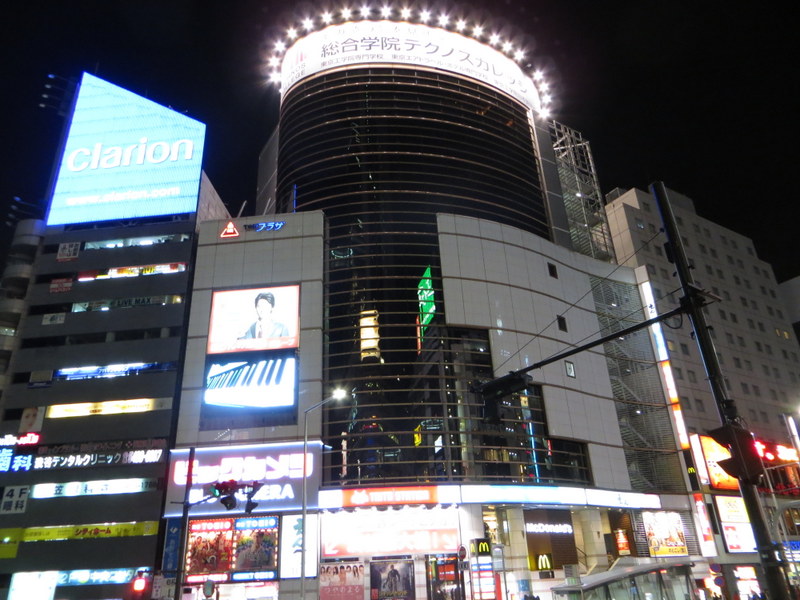
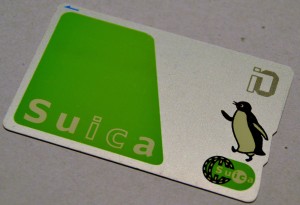
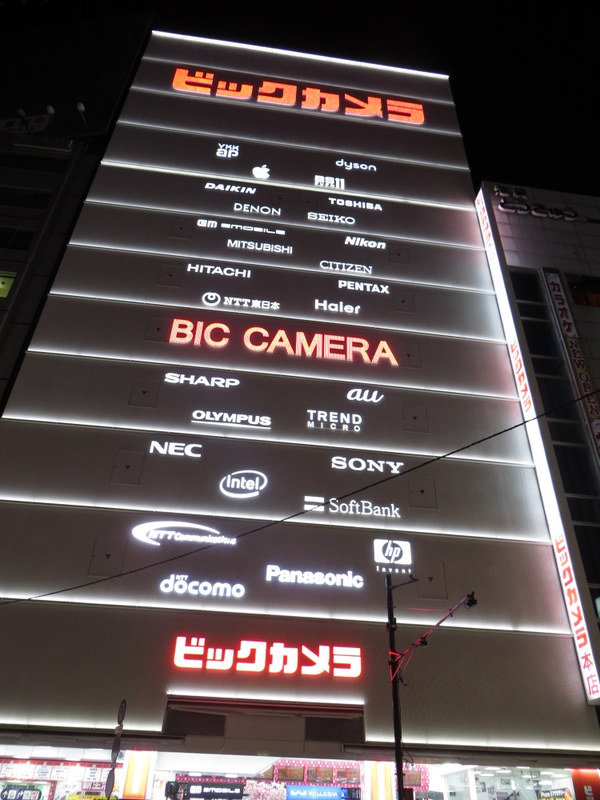
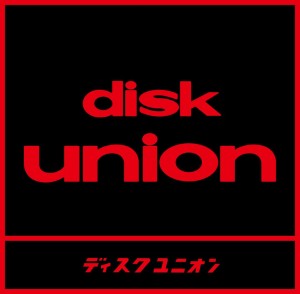


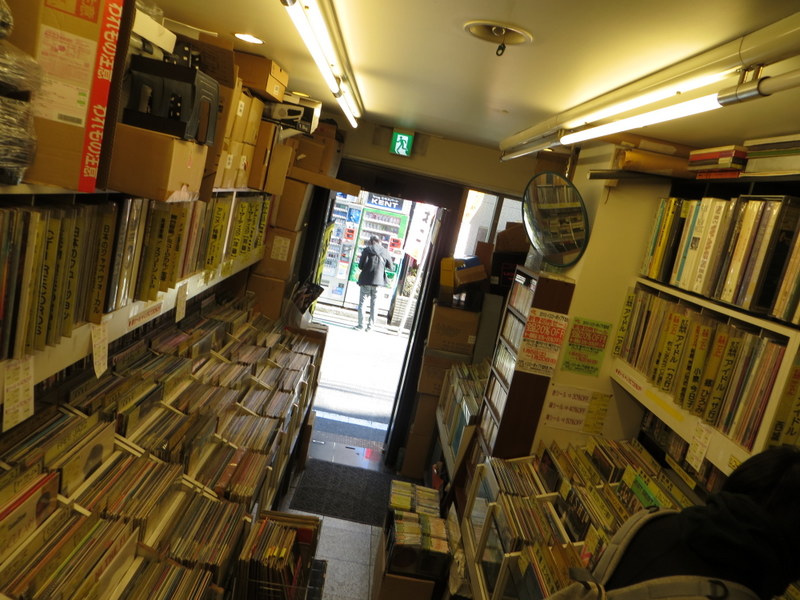
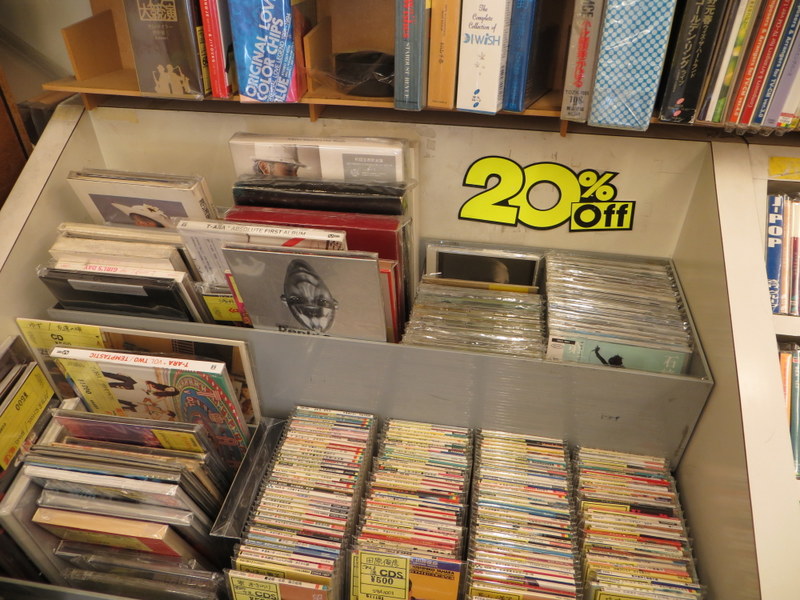
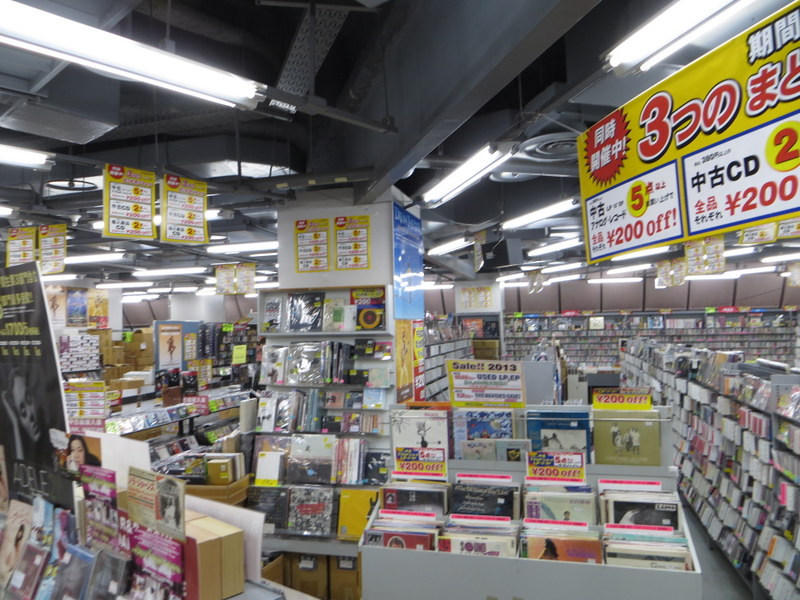


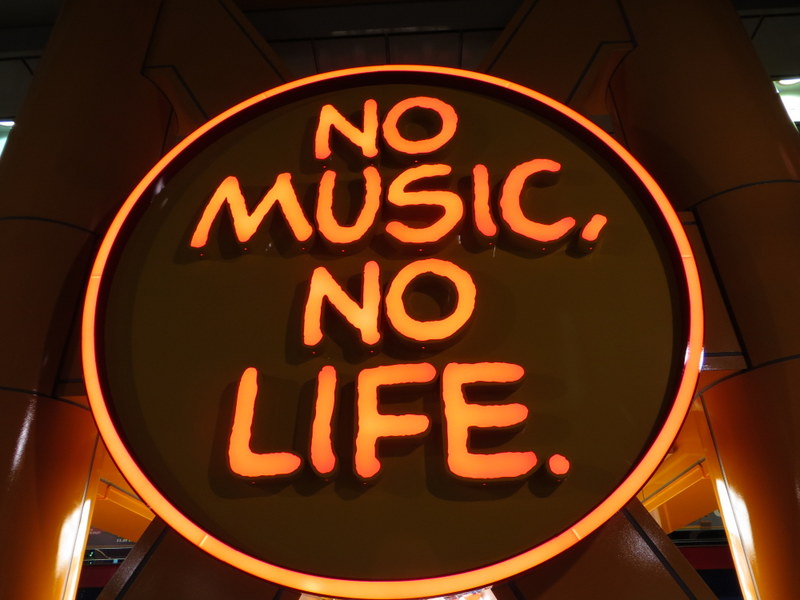
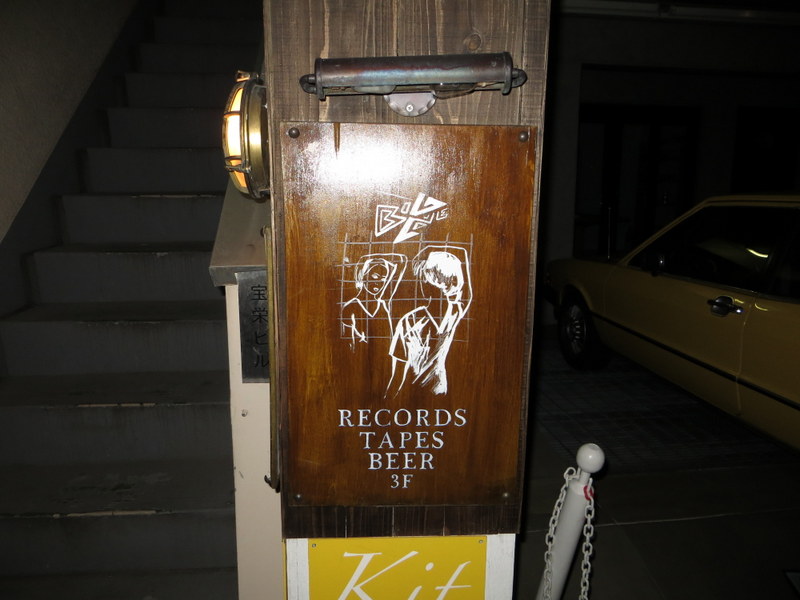

Leave a Reply